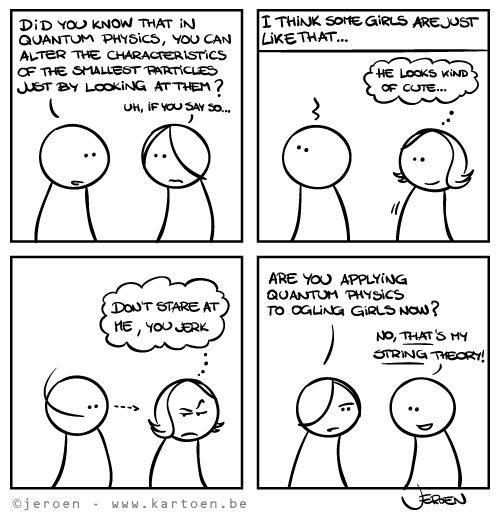The following essay is in response to a question on the Common Ap:
*******************************************************************************
There are, of course, many things which have influenced me
in some way: people, places, things, rock, paper, scissors, etc….However, one
thing in particular in which I live in constant fear of is the sad state of
scientific illiteracy in America, or more correctly, the grand state of
scientific illiteracy. This disease that has gripped America firmly by the
ankles worries me sick.
Here in America, the country that leads the world in
technological advances, most people do not understand something as simple as a camera,
or even the concept of a molecule. For example, my mother, when asked what a
molecule is, said, “it’s a tiny thing that everything is made of.” HA! Can you believe
that answer!? Why everyone knows it’s a…well.. a tiny thing that MOST things
are made of. According to an article I read recently only thirty percent of
Americans say that they understand the concept of a molecule. The article also
says that about HALF of these people, when asked to define a molecule, could
not. (I’d say that honesty might also be something to work toward, but this
essay is about scientific illiteracy; the next one is about honesty).
How about the
seventy percent that said they don’t know what a molecule is? Do fifty percent
of those people actually know what a molecule is? If so, that’s about fifty
percent. Any country batting .500 in the molecule department isn’t doing too
badly. According to the same article, nearly half of the people surveyed in
England could not name just three scientists, living or dead. Three! Living or
dead!! HA! At least we’re ahead of the English. And to think that Newton was
English! After all, when a construction worker drops a heavy wrench on your
head, won’t it comfort you to know that gravity was responsible for that
terrible occurrence; and despite any malevolent motives of the worker, gravity
was the real culprit? And won’t it be
satisfying to know that Newton a famous scientist (of whom at least half of you
have never heard), tried the same thing with an apple? Of course, Newton was
smart; the apple didn’t give him a fractured skull.
It is time for something to be done. We must save our
national pride and educate Americans about dead scientists! We must pass
legislative measures, consider joint resolutions, form committees, fly in
experts to be sure that we don’t all become too unaware of Heisenberg’s
Uncertainty Principle! Now if I could only remember where I put my socks…
******************************************************************************
Is this an effective essay for selective colleges and
universities?
Does the writer raise an important issue and successfully
convince readers that scientific illiteracy is a significant problem?
Does the humor serve as an effective way of communicating
this writer’s voice?
Is the use of creative punctuation useful to this essay?
If this student presented great academic credentials (top of
the class, great SAT, strong recs from science faculty, science awards in
activities) would this essay help you admit this student? Why or why not?
Should admission officers look for the same level of writing
skills from students who are interested in pursuing science majors given the
lack of STEM (Science, Technology, Engineering, and Mathematics) majors in the
US?
Should it make a difference in the evaluation if this
student is from a low-income family, an under-represented group, or a rural
school which sends very few students on to colleges? Why or why not?
What is Heisenberg’s Uncertainly Principle?







No comments:
Post a Comment